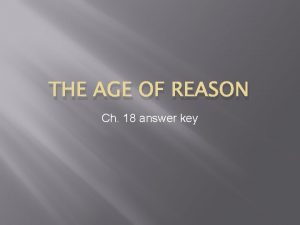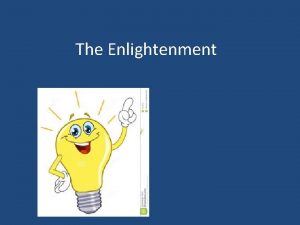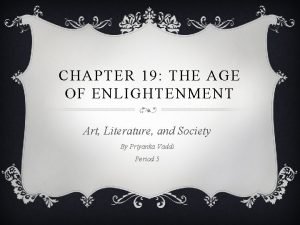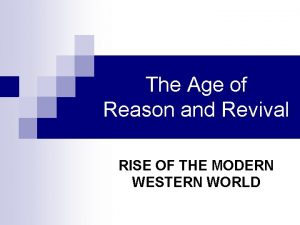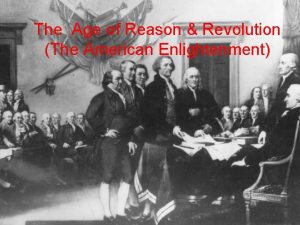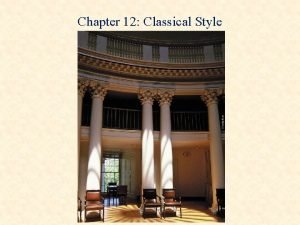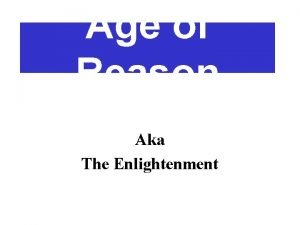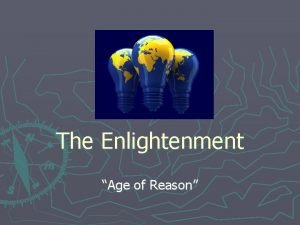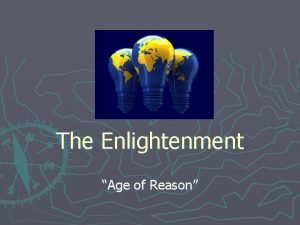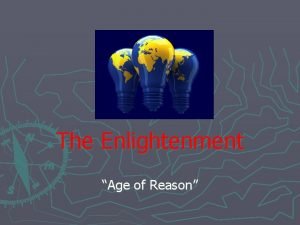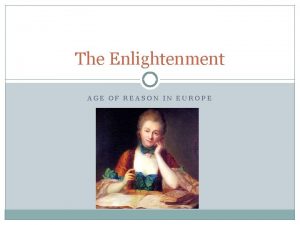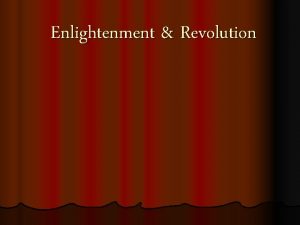The Enlightenment The Age of Reason The Age









- Slides: 9

The Enlightenment The Age of Reason

The Age of Enlightenment - A period of intellectual growth and exchange in Europe during the 18 th century - A period of “Progress” - Motivated by the desire for political and social change

A Challenge to Old Beliefs Enlightenment Writers & Philosophers - Questioned ideas that were long held as unquestioned truth - Challenged the belief in absolute monarchies - Questioned the relationship between church and state - Debated rules and rights of people in society - Promoted ideas reformers and revolutionaries would later use to change society

Science & The Age of Reason The Scientific Revolution convinced many European thinkers about the power of reason! Thus Enlightenment thinkers believed that reason could then also be used to study human nature and society o New generation of philosophers, 1600 s o Viewed reason as best way to understand truth o Concluded reason could be used to solve all human problems

Ideas of Enlightenment • Mostly among educated people • Belief that world problems could be solved by people • Paris, France – center of this intellectual activity • New ideas debated in coffeehouses, public spaces, and at salons (informal social gatherings at which writers, artists and philosophers exchanged ideas) • Writers published ideas in books, magazines, pamphlets

The Philosophes • Intellectuals who discussed ideas • Used reason to explain their world • Believed that Reason could improve society • Believed in tolerance for all religions

The Philosophes (means “lovers of wisdom”; the thinkers of the Enlightenment)

Enlightenment Ideas Spread Reforms • Belief in progress led many to enact reforms • Believed reason could solve any problem, debated ways to make society more just • Did not accept poverty, ignorance, or inequality as facts of life Revolutions • Ideas about power and authority inspired reforms and revolutions • American colonists were inspired to break free from the British monarchy

Conclusion • The Enlightenment was a period of intellectual exchange in Europe during the 18 th century that was rooted in the Scientific Revolution • Philosophes expressed the desire for social and political change • Some reforms were enacted because of the influence of the ideas of Enlightenment thinkers • In some places, such as the British colonies, France and Haiti, Enlightenment ideas led to revolutions!
